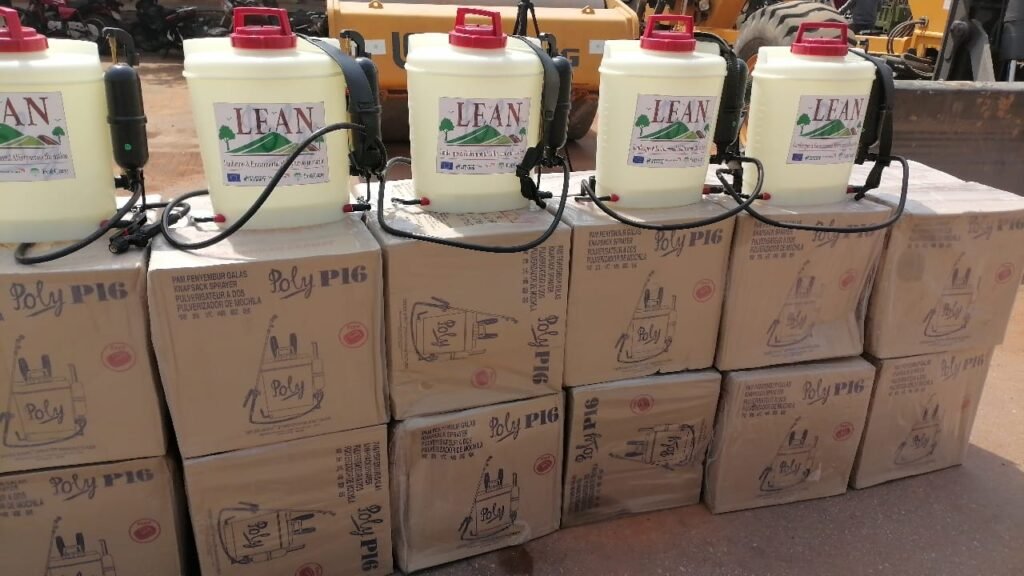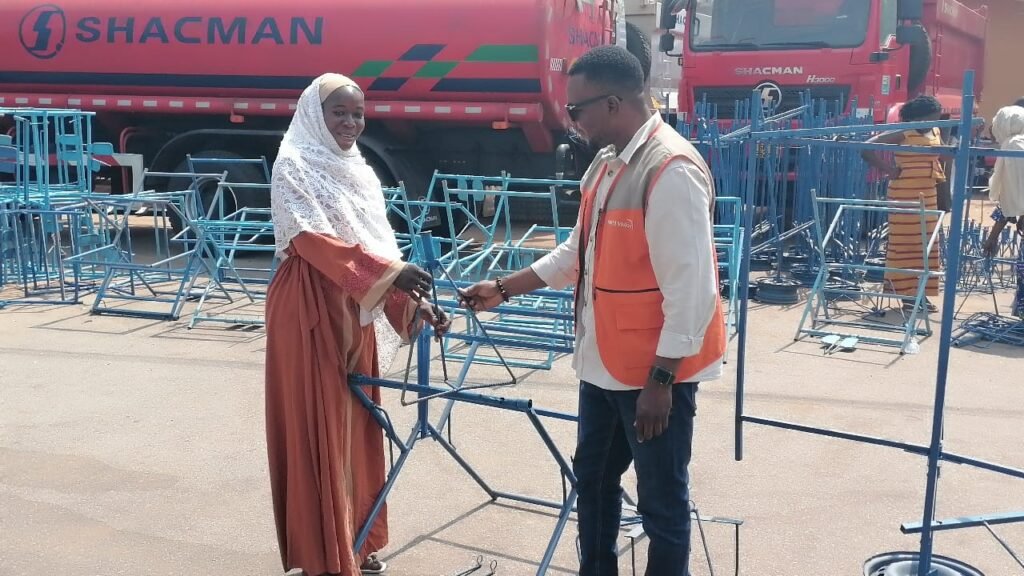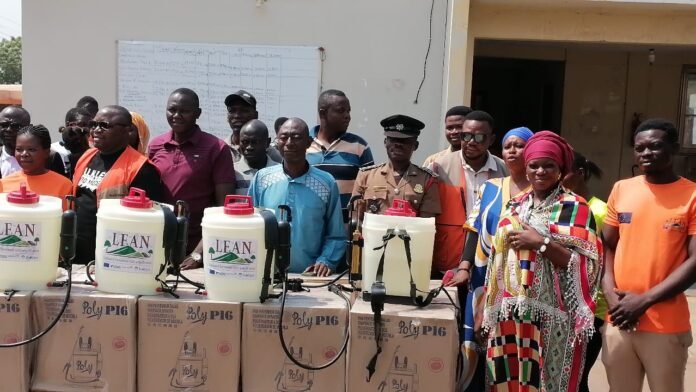World Vision Ghana, as part of its EU-funded LEAN project in the West Gonja Municipal, has distributed weaving looms and knapsack sprayers to beneficiaries. The distribution, which took place at the forecourt of the West Gonja municipal assembly on Thursday, January 23, 2024, has restored hopes in the community, with the aim of transforming lives.
Rexford Bugre, Acting Northern Regional Operations Manager of World Vision Ghana, speaking at the event, thanked the chiefs, community opinion leaders, and authorities of the West Gonja Municipality Assembly and its decentralized departments for their support provided to World Vision in the rollout of the Landscapes and Environmental Agility across the Nation (LEAN) Project interventions in this district.
According to him, the partnership between the West Gonja Municipality and World Vision Ghana dates back to 1979, when it began its Community Development (CD) projects. However, in 1992, World Vision Ghana shifted to the Area Development Programme (ADP) system as part of its strategic plan to provide critical development support for the most vulnerable children, their families, and their communities.

“Mr. Chairman, in 2021, World Vision Ghana, with funding from the European Union (EU), once again introduced another initiative, the Landscapes and Environmental Agility across the Nation (LEAN Project), which aimed to improve biodiversity, increase food production, and contribute to restoring degraded landscapes in the Savannah region.
Through this project, World Vision Ghana has implemented a number of interventions, including the establishment of Land Management Boards (LMBs), Farmer Managed Natural Regeneration (FMNR), Savings for Transformation (S4T), community nurseries, and built the capacity of 480 farmers,” he said.
He added that as a result of the LEAN project, several hectares of degraded parklands have been restored, improving biodiversity and increasing the income of women. According to him, in the last three years, more than 39,744 preferred tree species—mango, shea, rosewood, kapok, and mahogany, among others—have been distributed and planted across the beneficiary communities.

An effort that has not only helped reclaim degraded parklands but also promotes sustainable environmental practices such as non-burning and indiscriminate felling of trees, reducing the impact of climate change on these communities.
“Additionally, 100 farmers have been trained and supported in beekeeping, while 1,500 women are incorporated into 60 savings-for-transformation groups,” he added.
To further strengthen the resilience and diversify the livelihood and income streams of selected households in the municipality, the project, based on a needs assessment conducted, has provided weaving looms and accessories to 75 beneficiaries. A gesture that is to help reduce their dependency on the environment, such as harvesting and selling firewood or charcoal production for their livelihoods.
Additionally, the project is providing 140 high-pressure knapsack sprayers to community fire volunteer groups to further equip them to manage wildfires at the community level, especially during the dry season. This is to further strengthen environmental agility in the municipality.
In conclusion, he encouraged the beneficiaries to take advantage of these opportunities to improve their income, increase household food security, and build their resilience against climate shocks.

The over two hundred beneficiaries who received the donations expressed their gratitude to World Vision Ghana and partners (EU) for bringing the life-changing LEAN project, which has transformed their lives since its implementation. They pledged their commitment to utilizing the items donated to them to serve their purpose, believing that when utilized properly, it will bring more of these projects from World Vision and other partners.
They also called on the government to take on this initiative as the LEAN project will end this year after its existence for the past four years.
LEAN is a four-year project funded by the European Union’s flagship GCCA+ initiative that aims to conserve biodiversity, build climate resilience, and reduce emissions from land-use changes in the savannah, high forest, and transition zones of Ghana.




